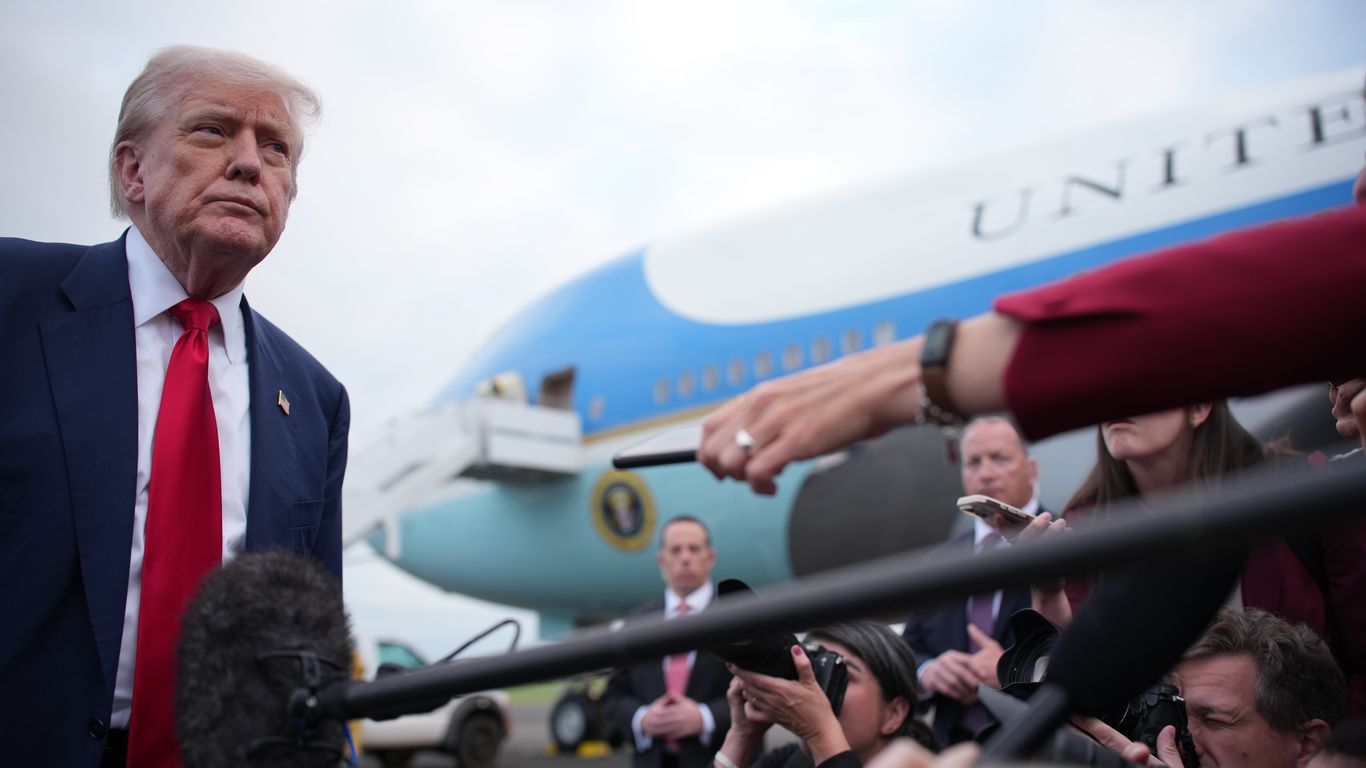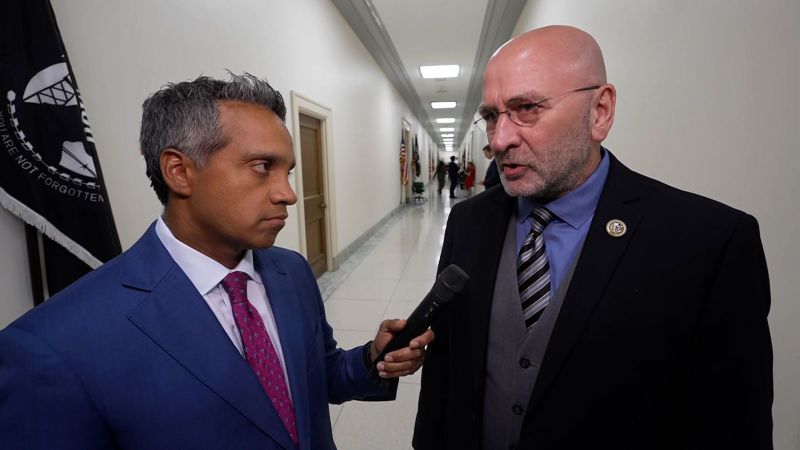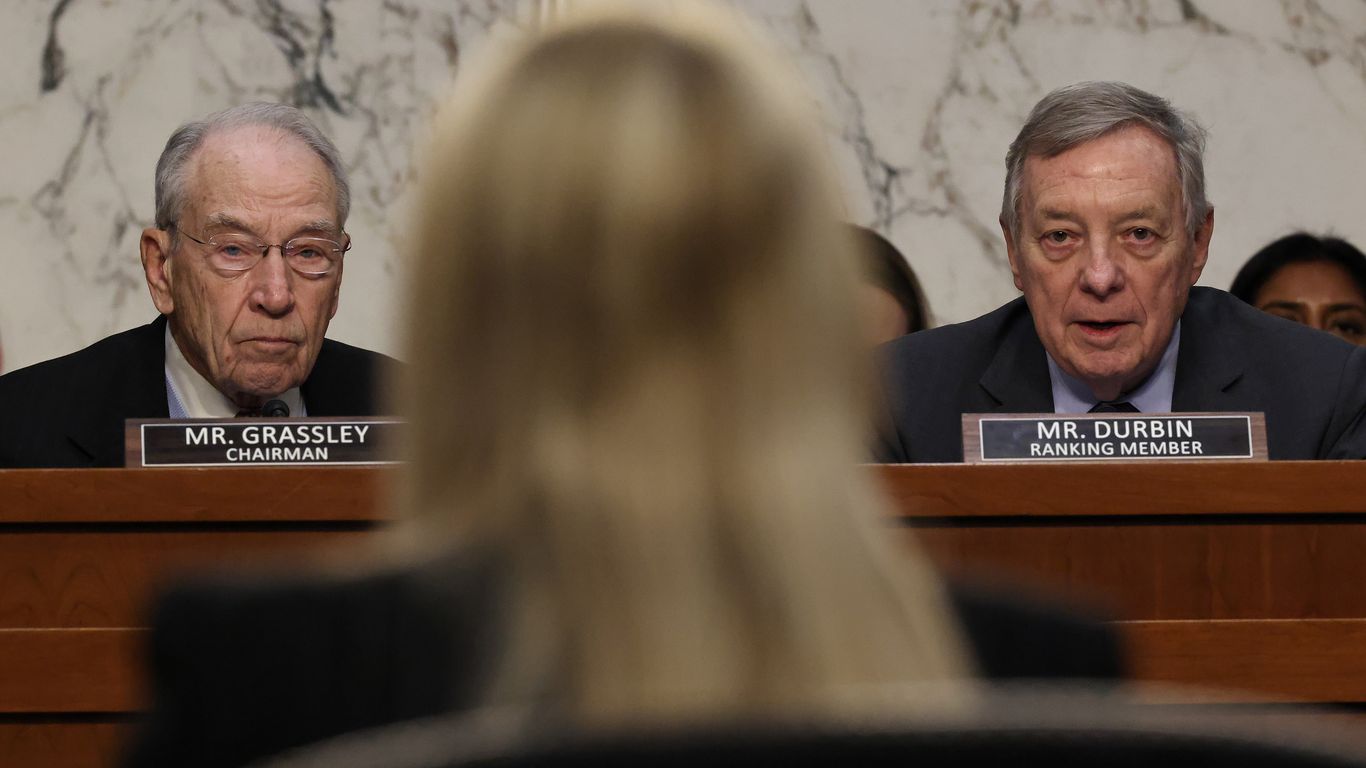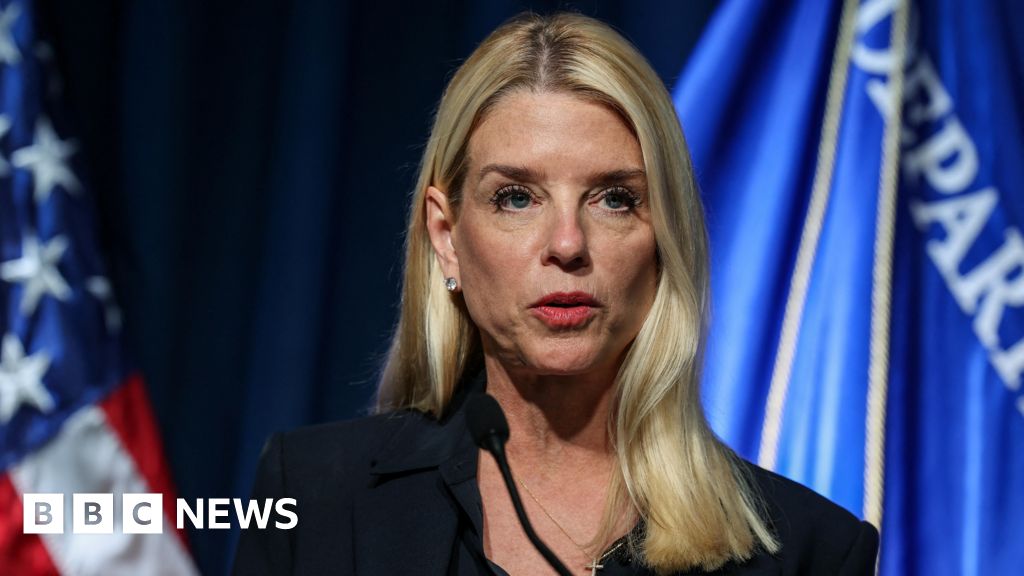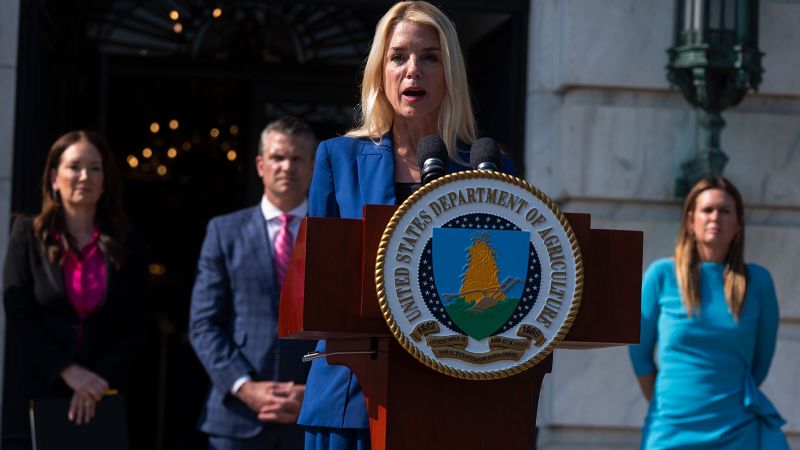House Committee Subpoenas Clintons and Top DOJ Officials in Epstein Case
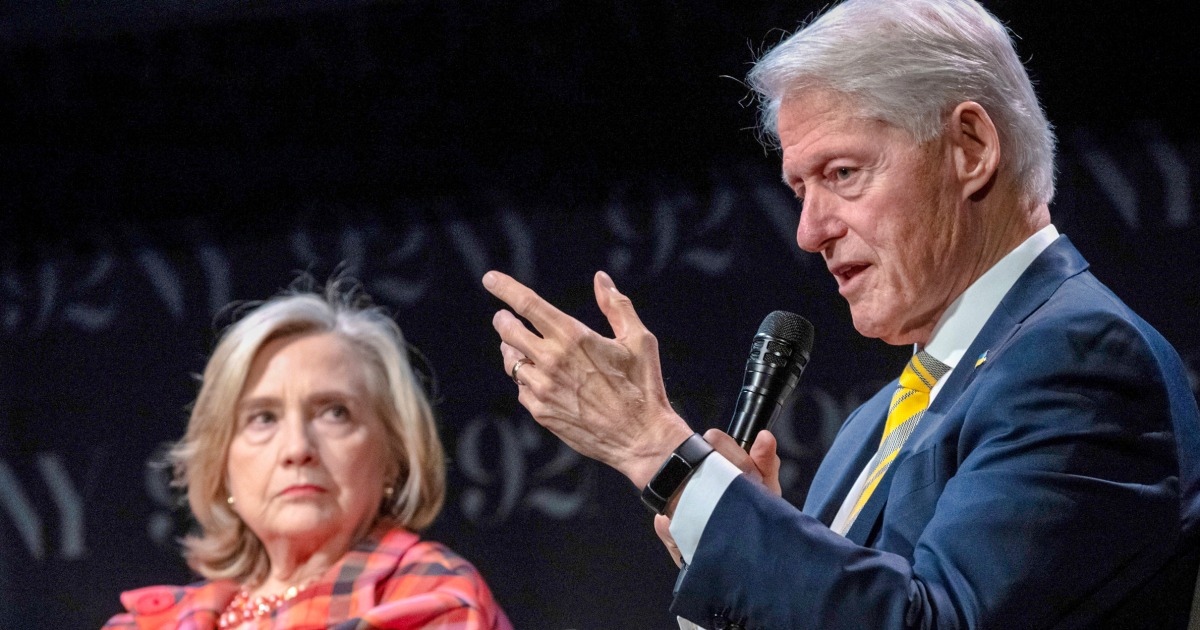
Introduction
The House committee investigating the Jeffrey Epstein case issued subpoenas Tuesday to former President Bill Clinton, former Secretary of State Hillary Clinton and several top former Justice Department officials for their testimony. This move comes as the committee continues its probe into the late financier's alleged sex trafficking and abuse of underage girls.
Key Details
The subpoenas were issued to obtain information and testimony from the Clintons and former DOJ officials who were involved in the initial investigation of Epstein in 2008. This includes former Attorney General Loretta Lynch, former acting Attorney General Sally Yates, and former U.S. Attorney for the Southern District of Florida, Alexander Acosta. The House committee is seeking to determine if there was any wrongdoing or influence in the handling of the case, which ultimately resulted in a plea deal for Epstein and a lenient sentence.
Impact
The Clintons have faced scrutiny and speculation regarding their connections to Epstein for years, with some alleging that they were involved in or aware of his illegal activities. This subpoena adds to the ongoing controversy and could potentially uncover new information about their relationship with Epstein. It also raises questions about the handling of the case by the DOJ officials involved and the potential for political interference in a high-profile criminal investigation. The outcome of the testimonies could have significant implications for all parties involved and the ongoing investigation into Epstein's alleged crimes.
About the People Mentioned
Bill Clinton
William Jefferson Clinton, born William Jefferson Blythe III on August 19, 1946, in Arkansas, is an American politician and lawyer who served as the 42nd president of the United States from 1993 to 2001[3]. A member of the Democratic Party, Clinton became the first president from the Baby Boomer generation and the youngest president to serve two full terms since Theodore Roosevelt[3]. He earned a bachelor’s degree from Georgetown University, studied at Oxford as a Rhodes Scholar, and graduated from Yale Law School, where he met his future wife, Hillary Rodham[3][7]. Clinton’s political career began in Arkansas, where he served as attorney general and was elected governor at age 32, holding the office for five non-consecutive terms and earning a reputation for reforming education, health care, and welfare[2][3]. In 1992, he was elected president, defeating incumbent George H.W. Bush and independent Ross Perot, and was re-elected in 1996[3][6]. His presidency is best remembered for presiding over the longest peacetime economic expansion in U.S. history, marked by record job growth, low unemployment, rising home ownership, and the first federal budget surpluses in decades[1][4][8]. Significant domestic achievements include the Family and Medical Leave Act, the Violent Crime Control and Law Enforcement Act, and the ratification of the North American Free Trade Agreement (NAFTA)[1]. His attempt at comprehensive health care reform, led by First Lady Hillary Clinton, failed to pass Congress and contributed to Republican gains in the 1994 midterms[1]. In foreign policy, Clinton helped broker the Oslo Accords between Israel and the Palestine Liberation Organization, the Israel-Jordan peace treaty, and the Dayton Peace Accords ending the Bosnian War[1][4]. He also authorized NATO intervention in Kosovo to halt ethnic cleansing[4][5]. However, his administration faced criticism for its handling of conflicts in Somalia and Rwanda[1]. Clinton’s presidency was marred by scandal, most notably the Monica Lewinsky affair, which led to his impeachment by the House of Representatives in 1998 for perjury and obstruction of justice; he was acquitted by the Senate in 1999[5][6]. Despite the controversy, he left office with high approval ratings[6]. Since leaving the White House, Clinton has remained active in global philanthropy through the Clinton Foundation, focusing on issues such as global health, climate change, and economic development[4]. He continues to be a prominent public speaker and occasional political advocate. There are no major recent events directly involving Clinton as of October 2025, but he remains a significant figure in American political life.
About the Organizations Mentioned
House Committee
## Overview The term **House Committee** refers to the system of specialized committees within the U.S. House of Representatives, a core component of the legislative branch. These committees manage the vast legislative workload by dividing responsibilities among smaller, expert groups, enabling thorough review of proposed laws, oversight of government agencies, and investigation of pressing issues[1][3][5]. The committee system is essential for Congress to function efficiently, especially given the complexity and volume of modern legislation. ## Functions and Structure House Committees are responsible for considering bills, conducting oversight of federal agencies and programs, and investigating issues within their jurisdiction[5]. There are three main types: **standing committees** (permanent, focusing on broad policy areas like Appropriations, Ways and Means, and Judiciary), **select committees** (temporary, created for specific investigations or issues), and **joint committees** (comprising members from both the House and Senate)[1][3]. Most committees are further divided into subcommittees for more specialized work[1][6]. Currently, the House has 21 standing committees, with some—like Appropriations—handling enormous budgets and thus requiring exclusive focus from their members[6]. ## Historical Development The committee system in Congress dates back to the first Congress in 1789, though the Constitution does not explicitly mention committees[7]. Initially, both the House and Senate relied on temporary select committees. Over time, as the federal government grew in size and complexity, the number and specialization of committees expanded. Major reforms in 1946 and 1970 streamlined the system, reducing the number of committees but increasing their professional staff and resources[3][4]. Today, committees are central to the legislative process, shaping the details of most bills before they reach the full House floor[2]. ## Key Achievements and Notable Aspects Committees have been instrumental in landmark legislation, from tax reform to healthcare, by providing expert review and public hearings. They also play a critical oversight role
DOJ
## Overview The **United States Department of Justice (DOJ)** is a federal executive department responsible for enforcing federal laws, ensuring public safety, and upholding civil rights across the United States[1][3][4]. Headquartered in Washington, D.C., the DOJ operates under the leadership of the U.S. Attorney General, a presidential appointee who reports directly to the President and serves on the Cabinet[4]. The department comprises more than 40 component organizations and over 115,000 employees, with field offices in every U.S. state and territory, as well as in more than 50 countries worldwide[1][4]. ## What the DOJ Does The DOJ’s core mission is to uphold the rule of law, keep the country safe, and protect civil rights[1][5]. Its work is organized into three co-equal priorities: law enforcement, litigation, and grantmaking[5]. The department oversees major federal law enforcement agencies, including the Federal Bureau of Investigation (FBI), Drug Enforcement Administration (DEA), Bureau of Alcohol, Tobacco, Firearms and Explosives (ATF), U.S. Marshals Service, and the Federal Bureau of Prisons[2][4]. These agencies investigate and prosecute federal crimes, apprehend fugitives, manage federal prisons, and combat terrorism and organized crime[2][6]. The DOJ also includes litigating divisions that enforce federal criminal and civil laws—covering areas such as antitrust, tax, civil rights, environment, and national security—and represents the U.S. government in court through the 94 U.S. Attorneys’ offices[2][4]. Additionally, the DOJ administers grant programs to support state, tribal, and local justice initiatives[2]. ## History The DOJ was formally established by Congress in 1870, during the Ulysses S. Grant administration, to centralize federal legal functions that had previously been dispersed across various departments[4][9
Southern District of Florida
The **Southern District of Florida** is a federal judicial district that plays a crucial role in the U.S. legal system, particularly in the state's southern region. This district is part of the U.S. federal court system and is responsible for handling a wide range of civil and criminal cases. ## Organization and Function The Southern District of Florida is one of the busiest federal courts in the country, with its main courthouse located in Miami. It also has branch offices in Fort Lauderdale, West Palm Beach, and Fort Pierce, along with an unstaffed office in Key West[2]. The district court is supported by the United States Attorney's Office for the Southern District of Florida, which is the chief law enforcement agency in the district. This office is divided into several divisions, including the Executive, Administrative, Criminal, Civil, Asset Forfeiture, and Appellate Divisions[2]. ## History Historically, the Southern District of Florida was established as part of the broader Florida judicial district, which has evolved over time. Initially, Florida was a single judicial district until it was divided into the Northern, Middle, and Southern districts in 1847[5]. The Southern District has since become a significant legal hub, handling cases that impact both local and national issues. ## Key Achievements and Current Status One of the notable achievements of the Southern District of Florida is its commitment to civic education. The district has developed and implemented programs like the "Civil Discourse and Difficult Decisions" initiative, which aims to promote civil discourse skills among high school students[4]. This program has been recognized nationally and is used by other districts. Currently, the Southern District continues to be at the forefront of legal affairs, handling complex cases in areas such as cybersecurity, intellectual property, and financial crimes. Its use of technology, such as the Court Management/Electronic Case Files (CM/ECF) system, enhances efficiency in legal proceedings[6]. ## Notable Aspects The



